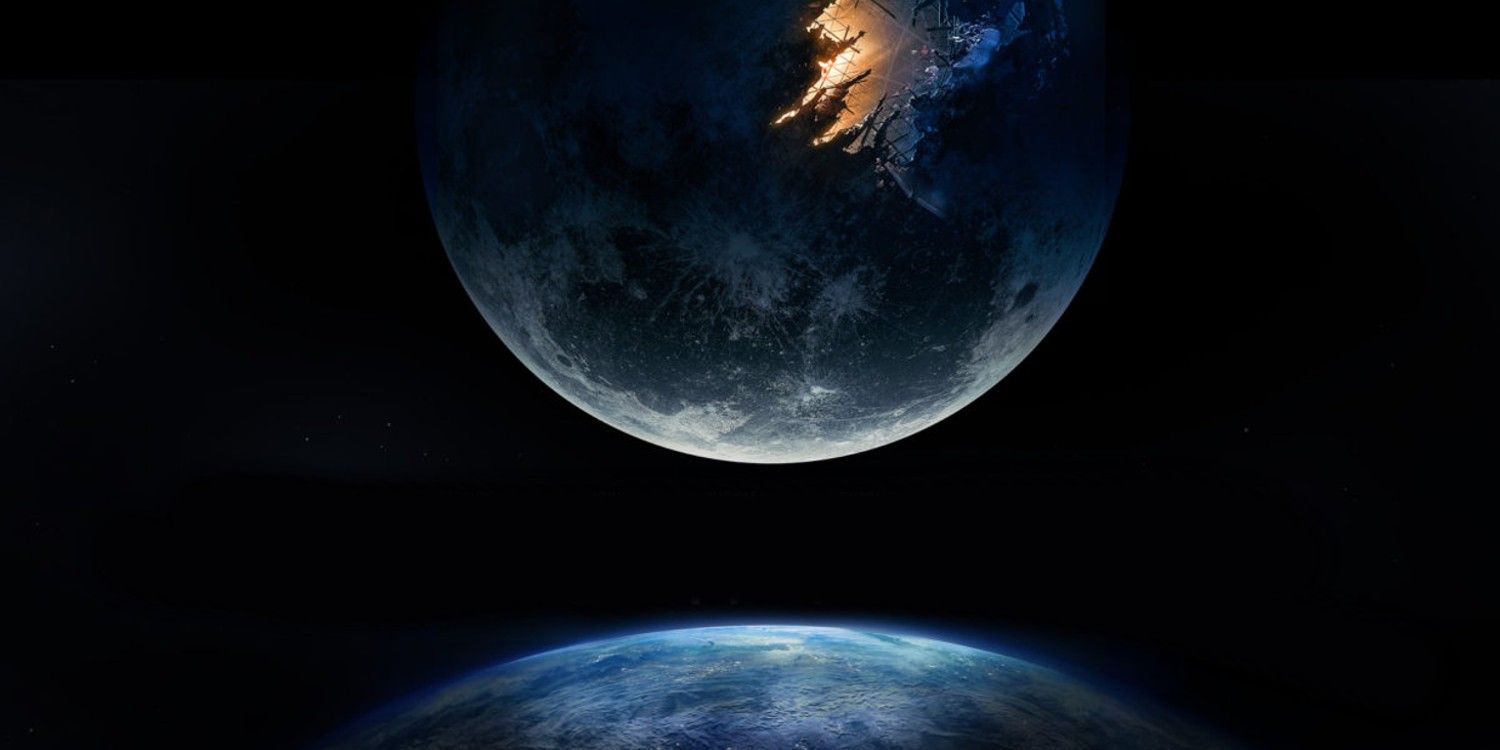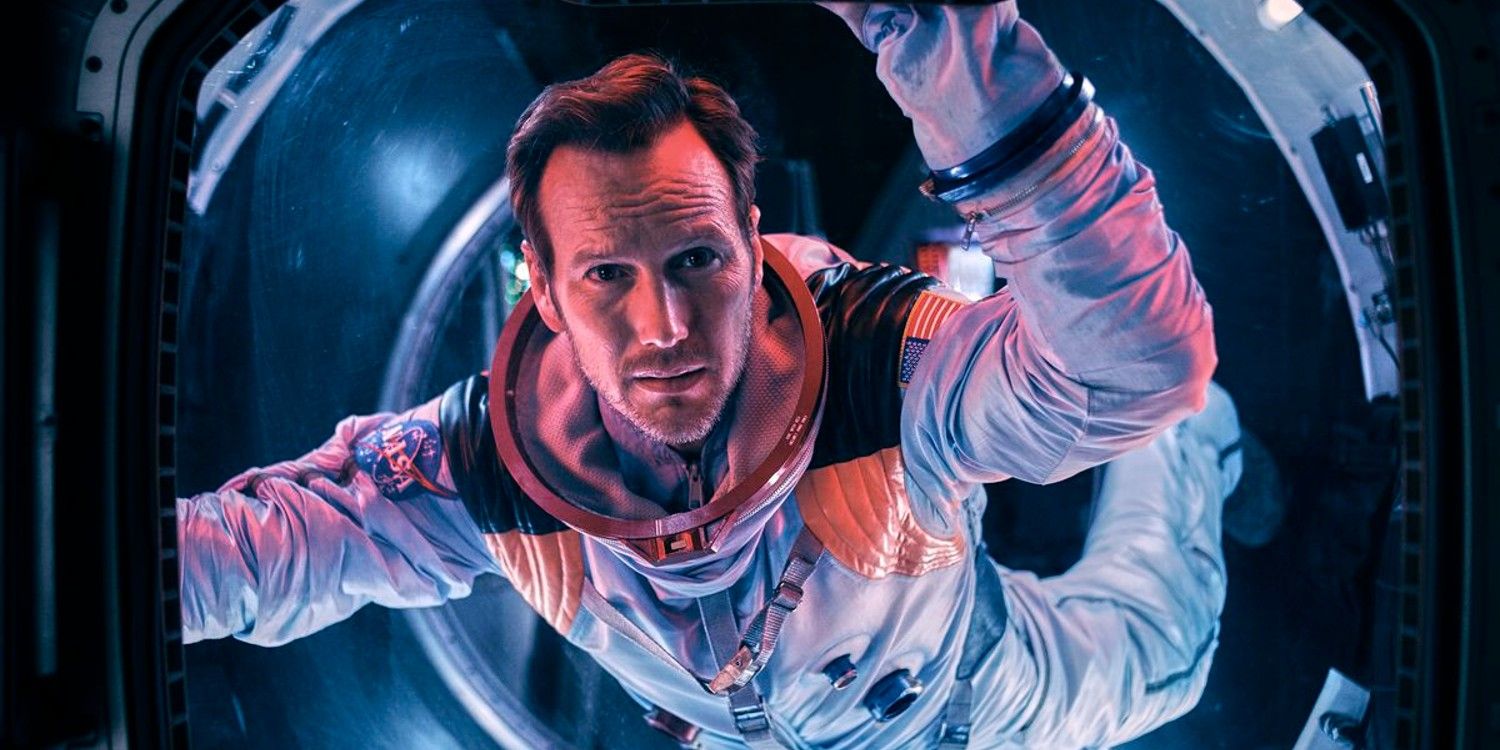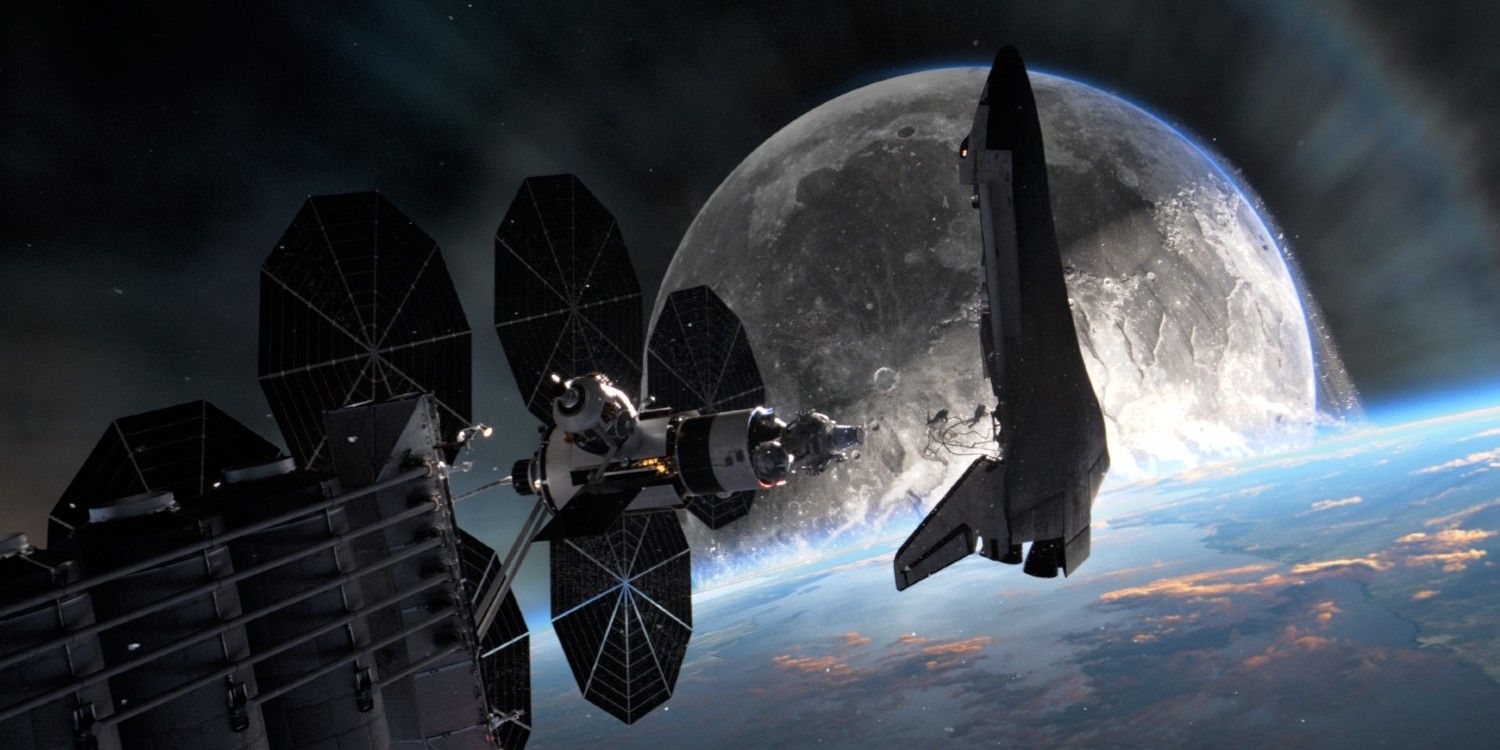WARNING: This article contains spoilers for Moonfall
Roland Emmerich’s Moonfall plays to the director’s strengths as a science fiction disaster movie, although it is questionable whether the events in Moonfall could actually happen. Emmerich is no stranger to creating exciting yet unlikely scenarios, having directed Independence Day, The Day After Tomorrow, and 2012. Moonfall follows these films’ precedent of enhancing realistic cataclysms to the point of enthralling impossibilities.
In Moonfall‘s cast of characters, conspiracy theorist K.C. Houseman, played by John Bradley, uncovers that the Earth’s moon is artificial and on a crash course with the Earth. During the natural disasters caused by the approaching moon, Houseman accompanies two astronauts, played by Halle Berry and Patrick Wilson, as they journey to correct the moon’s trajectory. Unfortunately for them, a mysterious, swarm-like being inhabits the moon, thwarting their attempts to save both the moon and the Earth.
While a thrilling, wild sci-fi adventure, Moonfall leans into its fiction and plays loosely with its science. The creative team consulted with scientists to realistically enhance the theoretical situations of Moonfall, but some aspects of the movie are highly unlikely while others are impossible. All of this adds into Moonfall’s schlocky premise, however, both placating audiences with enough realism to warrant suspension of disbelief for some of its more outlandish aspects. From the Moon’s effects on the Earth to the movie’s futuristic technology, here are reasons the science fiction movie Moonfall may or may not be able to actually happen.
Earth Would Suffer If The Moon Got Closer

Moonfall portrays the effect of the Moon tightening its orbit around the Earth relatively accurately. As the movie shows, if the Moon would get closer to Earth, the effects of its gravity on Earth would increase dramatically. Described as the tidal effect of gravitational waves, the Moon currently causes Earth’s water to rise and fall in high and low tides, as well as ripple as waves. These waves would become more pronounced with a closer moon, amounting to tsunamis. Additionally, tides would occur in air, resulting in a fluctuating atmosphere, and in the earth, causing earthquakes.
However, Moonfall’s devastating implication that the Moon would collide head-on into the Earth if it fell out of orbit is slightly inaccurate. As the Moon would approach Earth, it would succumb to gravitational force and shatter, its pieces forming an orbital ring similar to those of Saturn. Debris from this breakage would fall toward Earth, however, causing cataclysmic damage. While the Earth would not explode with the debris’ impact, the craters caused by the impact would affect the entire surface of the Earth, most likely causing worldwide extinction and a decrease in Earth’s habitability.
Audiences can rest assured, though, because it is highly improbable that the Moon would leave its orbit and hurtle toward Earth for any reason. The Moon is so set in its orbit, it does not move regardless of the many asteroids that collide with it each day. In fact, contrary to the setup of Moonfall’s fictional premise, the Moon is constantly moving further away from the Earth, and slowly at that.
Earth’s Ancient Society Is Unlikely

Moonfall postulates that the artificial moon was created by an ancient civilization of humanoids that inhabited Earth billions of years before the events of the movie. The potential of reality is heavily stretched, here; life first occurred on Earth 3.7 billion years ago, and land was first inhabitable only 700 million years ago. If Moonfall’s original Earth denizens originated on another planet, and could survive in a mostly aqueous environment, then its premise is feasible, although their advanced technology may still be a stretch.
The ancient humanoids created the Moon in Moonfall to be a combination space station, vehicle, and power source. The technology required to make this happen is stretched past current capabilities, but not overly outlandish; for instance, the methods of generating power in Moonfall are similar to those used in solar and nuclear power in reality. Furthermore, the capabilities of the artificial intelligence Moonfall’s ancients created are, again, currently impossible but not outside future possibility. Even the uploading of one’s intelligence to a computer is considered realistic under science fiction conditions, being a few steps beyond what current science is able to do.
In Moonfall, the Moon was intended to be one of many arks, salvation for those escaping from a monstrous artificial intelligence, similar to a crisis of Dune’s Earth. This suggests the Earth would have had multiple moons at one point. This appears outlandish, but may be more possible than it seems. Earth has one formal moon, but other masses do orbit it as well, mostly asteroids. Where the ancient Earth beings would have sourced the mass necessary for making extra moons is skeptically unknown, but Earth would potentially be suited to host more than one moon in its orbit.
The Moon Could Not Be A Power Plant

The moon of Moonfall is artificial, in itself an unlikely premise; the Moon is theorized to have originated from the collision of multiple planetoids, in an event that also created the Earth. With this artificial moon, Moonfall continues to assert that the Moon is falling out of orbit due to losing energy from its power source. In the spirit of sci-fi filmmaker George Méliès, this is inaccurate to the nature of orbiting bodies. No power or energy is expended when an object orbits a planet; rather, an orbit is a natural result of gravity, and thus Moonfall’s moon should have maintained its distance from the Earth regardless of its artificiality.
More impossible is Moonfall’s power source contained within the Moon. In Moonfall, a white dwarf star is inside the Moon, its energy being harvested to power the orbiting structure. While it is theoretically possible to generate power from white dwarfs through the gravity-derived electromagnetic radiation they exude, the problem lies with white dwarfs being stars or suns. As seen with Ikaris and the sun in Marvels’ Eternals, suns have deadly power; a certain distance is required for life to exist in proximity to a star due to the heat they give off. A planet can be about 500,000 miles away from a white dwarf and be survivable; the Moon is less than half that distance from the Earth.
Additionally, logistical issues pervade Moonfall’s use of its white dwarf power source. How the ancient Earthlings managed to move a small sun into Earth’s proximity safely is unclear. Even if they created their white dwarf, Earth’s former inhabitants would have had to collapse a larger star to form one, an act that would have destroyed them and potentially Earth itself. Moreover, white dwarfs are somewhat impractical power plants in the long run. These suns are, by definition, dying, which inevitably ends in a supernova and powerful explosions, shown in Star Trek: Picard. While current projections suggest it would take a white dwarf a longer period to die than the universe has existed, it seems illogical that a super-intelligent, long-lived civilization would base their escape pods’ power source on a star that explodes once it has lost all its remaining energy. Then again, fossil fuels are also a finite resource and humans use those, banking on the fact that they won’t run out for centuries.
More minor details poke holes in Moonfall’s plot, such as the protagonists using a long-defunct museum space shuttle to fly to the Moon, but these are beside the movie’s point. Moonfall appears to want to maintain just as much scientific accuracy as necessary to bolster the imagination that fills each scene. Science fiction is, at its base, speculation about what is and what could be under fantastical scenarios, and Moonfall is an excellent example of its genre. Regardless if Moonfall could actually happen, it is still an enjoyable, wild, sci-fi adventure.




